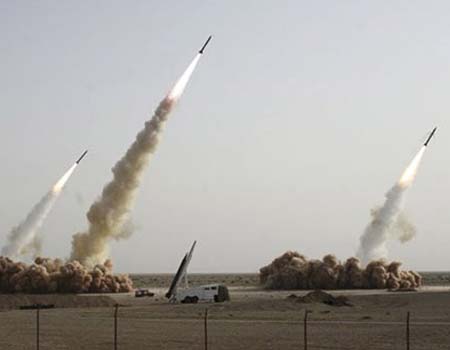Israel-Iran tensions hit a new high as Tel Aviv launched missiles at “limited targets” in Iran, coinciding with the birthday of Iranian Supreme Leader Ayatollah Khamenei. The strike occurred shortly after Iran hinted at reconsidering its “nuclear doctrine,” suggesting a potential escalation.
Before the attack, Israeli officials had informed their U.S. counterparts that a retaliatory move was imminent, drawing parallels to previous Iranian missile assaults on its own territory. According to Iranian state media, air defense systems were activated across several provinces, ensuring the safety of nuclear sites in Isfahan, located in central Iran. This action followed an Iranian attack on Israel in response to an alleged strike on the Iranian consulate in Damascus, resulting in the deaths of seven high-ranking members of the Iran Revolutionary Guard Corps, including General Mohammed Reza Zahedi.
U.S. media outlets quoted a senior official stating that Israel had confirmed the assault was not aimed at Iranian nuclear sites. CNN and Fox News reported that Israeli officials described the attack as “limited.” An Israeli source told The Washington Post that the strike was meant as a message of Israel’s military reach into Iran. Israel’s Home Front Command issued no special advisories regarding proximity to bomb shelters, suggesting no Iranian counterattack was anticipated.
Iranian semi-official news agency Fars reported the activation of air defenses in the region, with three explosions in Isfahan and near its international airport. Israeli media mentioned a missile strike targeting the town of Isfahan. Additionally, senior officials were reportedly present at the Kirya military headquarters in Tel Aviv.
Nevertheless, Iran denied any missile attacks, asserting that only drone strikes occurred. Iranian state media said small aerial objects were intercepted in the skies above Isfahan province. Flights to Tehran, Isfahan, and Shiraz were suspended.
Iran’s Retaliatory Warning
Iran’s Foreign Minister, Hossein Amir-Abdollahian, cautioned Israel against undertaking military action against Iranian interests. He indicated that Iran had completed its “defense and counteroffensive measures” and urged the international community to prevent Israel from pursuing any military initiatives against Iran. During a United Nations Security Council discussion, Amir-Abdollahian stated, “Iran’s legitimate defense and countermeasures have been finalized. Hence, the Israeli regime must be deterred from further military provocations against our strategic assets and interests. Should Israel engage in illegal force and breach our sovereignty, Iran will not hesitate to assert its right to provide a decisive response to make them rue their actions.”
Amir-Abdollahian accused Israel of launching a missile strike on Iranian diplomatic grounds in Damascus on April 1. He claimed Israel’s actions breached the United Nations Charter and international law, including the Vienna Convention. “The missile attack on April 1 against Iranian diplomatic premises in Damascus showcased Israel’s disregard for the established norms of diplomatic immunity and international conventions. The attack’s blatant violation of the United Nations Charter and Vienna Convention, as recognized by most Security Council members on April 2, is strongly condemned.”









